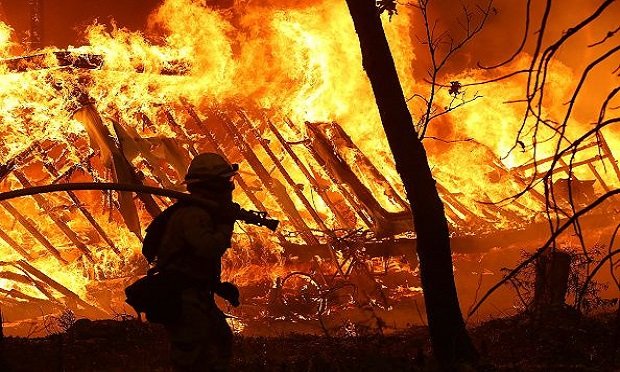 With fires beginning earlier in the spring and persisting later into the fall, communities may have to contend with the dual risk of COVID-19 and wildfire for several months. (Photo: Justin Sullivan/Getty Images North America)
With fires beginning earlier in the spring and persisting later into the fall, communities may have to contend with the dual risk of COVID-19 and wildfire for several months. (Photo: Justin Sullivan/Getty Images North America)
It is only the beginning of the 2020 wildfire season and already there have been 20,351 US wildfires between January 1 and June 12. Compare this to 16,630 fires during the same period in 2019, according to the National Interagency Fire Center (NIFC).
Recommended For You
Want to continue reading?
Become a Free PropertyCasualty360 Digital Reader
Your access to unlimited PropertyCasualty360 content isn’t changing.
Once you are an ALM digital member, you’ll receive:
- Breaking insurance news and analysis, on-site and via our newsletters and custom alerts
- Weekly Insurance Speak podcast featuring exclusive interviews with industry leaders
- Educational webcasts, white papers, and ebooks from industry thought leaders
- Critical converage of the employee benefits and financial advisory markets on our other ALM sites, BenefitsPRO and ThinkAdvisor
Already have an account? Sign In Now
© 2025 ALM Global, LLC, All Rights Reserved. Request academic re-use from www.copyright.com. All other uses, submit a request to [email protected]. For more information visit Asset & Logo Licensing.








